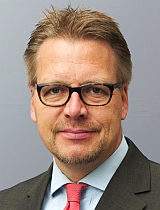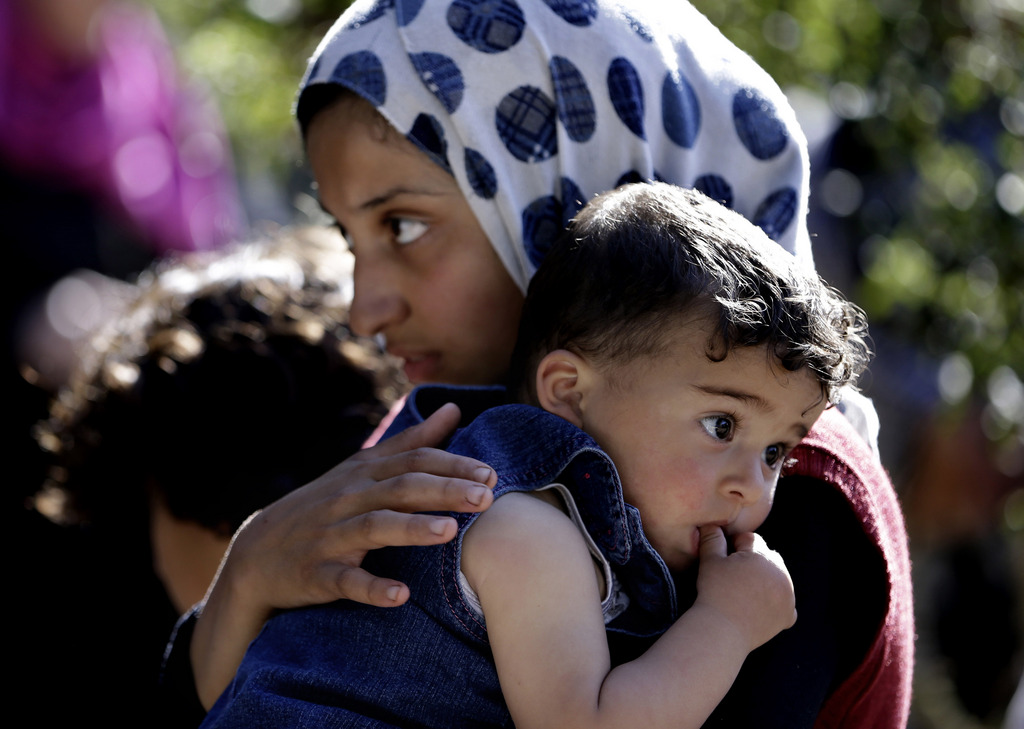‘Illegal’ strikes ‘not about regime change’

The United States, Britain and its allies are gearing up for a probable military strike against Syria that could come within days. Political scientist Markus Kaim says one of their underlying aims is to force parties to the negotiating table.
According to United Nations special envoy for Syria, Lakhdar Brahimi, “international law is clear” in requiring UN Security Council authorisation for any military action in response to a purported deadly chemical weapons attack in Damascus last week.
But Western leaders have made clear they are ready to do without it, citing precedents for foreign intervention to protect civilians. They are trying to build a cohesive rationale for possible limited punitive strikes and win broad international backing.
Meanwhile, chemical weapons experts investigating an apparent gas attack that killed hundreds of civilians in rebel-held suburbs of Damascus made a second trip across the front line on Wednesday to take samples.
Secretary-General Ban Ki-moon pleaded for them to be given the time they need to complete their mission. But the US and its allies have already pinned the blame on President Bashar al-Assad’s forces.
Kaim is head of the International Security Division at the German Institute for International and Security Affairs and professor of political science at the University of Zurich.
Switzerland said on Wednesday it was“extremely concerned” by the political and humanitarian situation in Syria. It strongly condemned the serious violations of international humanitarian law which had culminated in the alleged use of chemical weapons.
Switzerland deeply regretted that the UN Security Council had so far been unable to find a common international response to deal with the Syrian tragedy.
Switzerland continued to urge the security council to refer the Syria crisis to the International Criminal Court (ICC), which prosecutes genocide and war crimes.
Switzerland reiterated its call for reason and for responsibility on all sides to work towards a political solution. In addition, huge efforts must be urgently undertaken to protect the civilian population in conformity with humanitarian rules, it said.
Swiss President Ueli Maurer added on Thursday in an interview to Swiss public radio that possible military intervention by the United States or Britain in Syria worried him, “because an open conflict and the intervention by third countries should not be a solution to the problem and we have every interest in achieving a political and peaceful solution in Syria.” He said he was basically against using force if all other options had not been explored.
Source: Swiss foreign ministry, Swiss Public Radio
swissinfo.ch: Britain put forward a resolution on Wednesday condemning the use of chemical weapons and “authorising necessary measures to protect civilians”. Prime Minister David Cameron wants the UN to “live up to its responsibilities on Syria”. What is your view on this resolution [opposed by Russia on Wednesday]?
Markus Kaim: Given the division between the US-Britain on one side and China and Russia on the other, we won’t see any resolution authorizing the use of force according to Chapter VII of the UN Charter [setting out UN powers to maintain peace] in the foreseeable future. I can’t imagine the Russian government seriously considering authorizing ‘necessary measures to protect civilians’.
I think it’s a pretty clever step as even if the effort fails to get a resolution passed, it allows the British and US governments to explain to the international public that they tried everything possible to use the UN to create legality and legitimacy for their endeavour, which is not legal in international law terms.
It’s about generating legitimacy in the face of the lack of legality.

swissinfo.ch: Do you see the US and its allies following a similar path to Kosovo and persuading Nato to get involved or even lead any military action?
M.K.: The Kosovo case seems similar, but to a certain extent it is very different. In Kosovo Nato didn’t have the final mandate to use force from the UN Security Council.
However, we had a couple of resolutions pointing in that direction formulating ultimatums to the Serbian government indicating the possibility of using force. But in the Syrian case we don’t have a series of security council resolutions to refer to.
But I wouldn’t be surprised if the US tries to get Nato on board to create legitimacy to get as many partners involved as possible to support the mission politically.
I’m sure the US has already spoken to Saudi Arabia, Qatar and Jordan, and Turkey is already on board. The more regional the support is, the more legitimate it might be considered by the international community.
Justice Minister Simonetta Sommaruga has not ruled out the possibility that Switzerland takes in another contingent of refugees from Syria. She says she is in touch with the Geneva-based United Nations High Commissioner of Refugees and would inform shortly.
Since the start of the Syrian crisis, Switzerland has received two requests from UNHCR to resettle groups of refugees from Syria. It replied positively on both occasions and since last autumn welcomed 73 people, including 39 children.
swissinfo.ch: What do you see as the main goals of this possible military intervention?
M.K.: I see two main goals; first about punishing or sanctioning the use of chemical weapons. It’s about counter-proliferation. It’s not about regime change. If it was, we would see a totally different planning process with ground forces.
The second part is about the political process: the Geneva II peace process which should’ve started in June. The overarching political goal could be to send a clear message to Assad that his representatives have to show up in Geneva and start a negotiating process with the rebels regardless of where it’s heading.
Next week is the G20 meeting in St Petersburg. This could be used diplomatically if there was a military strike at the weekend. Everyone would be recalculating their political options in Damascus, Moscow and Tehran and among Hezbollah. Maybe we’ll see a diplomatic initiative next week in St Petersburg. And maybe the US will be clever enough to let the Russians present the diplomatic initiative.
We may see two or three days of punitive attacks and then everyone will recalculate their political options and see what happens. A window of opportunity for diplomacy may open up. If it doesn’t they will return to their military options, but this won’t be a long-term strategy.
This is a very clever step-by-step, phased approach by Obama.
swissinfo.ch: Do you agree with critics who say the limited punitive attacks will simply pour more petrol on the flames in Syria and the region?
M.K.: No, not really. The conflict has been going on for about two years and has escalated without the West getting involved militarily. The punitive attacks could be argued as a way of containing the conflict to prevent it from further extending to Lebanon, Iraq and to other places.

In compliance with the JTI standards
More: SWI swissinfo.ch certified by the Journalism Trust Initiative














You can find an overview of ongoing debates with our journalists here . Please join us!
If you want to start a conversation about a topic raised in this article or want to report factual errors, email us at english@swissinfo.ch.